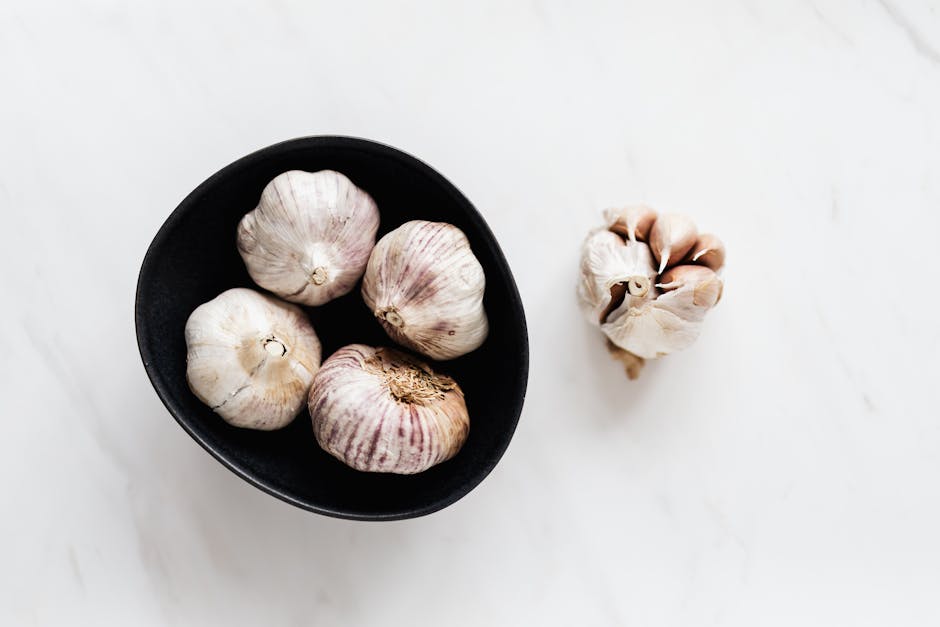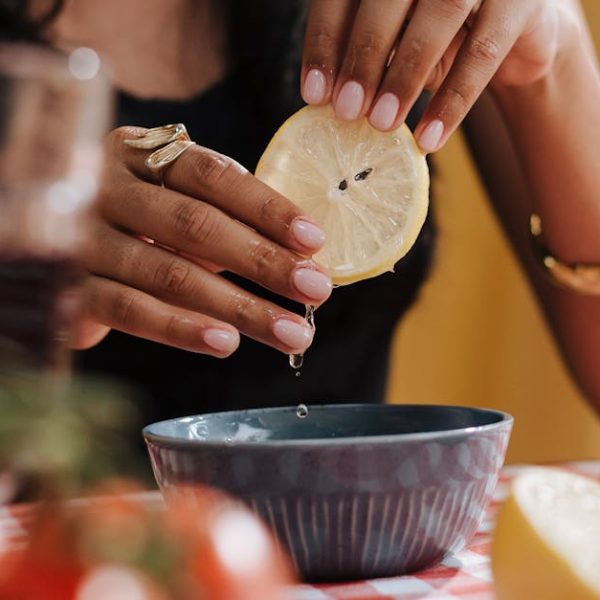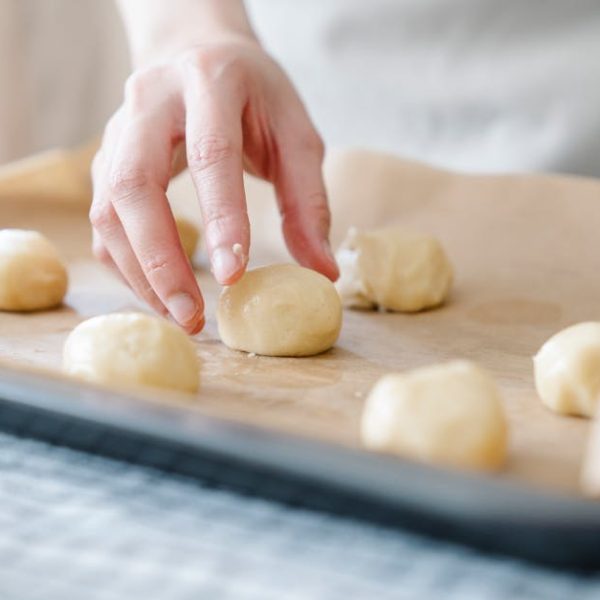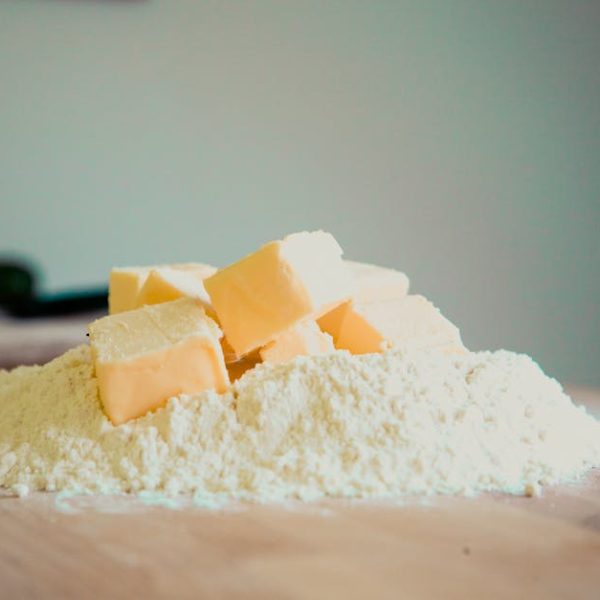When it comes to an ingredient that can alter the game in your kitchen, garlic steals the limelight. The pungent and spicy flavor it contributes to any dish undeniably enhances the overall taste—making it a must-have in every home kitchen. To savor the freshness of this culinary gem for longer periods, one must learn how to effectively preserve it. The five methods we’ll discuss will ensure your garlic stays as fresh as the day you bought it.
Storing Garlic in a Cool, Dry, and Dark Place
The storage environment plays a critical role in the longevity of your garlic’s freshness. Allowing it to get exposed to heat and light prematurely ages the garlic bulbs, diminishing both their taste and aroma over time. To ensure your garlic remains invincible against such degradation, find a cool, dark, and dry spot in your house. Store them in naturally breathable storage such as mesh bags or loosely woven baskets. Do remember—a refrigerator or any damp place can do more harm than good to your garlic.
Pro Tip: If you’re an occasional cook, purchasing small amounts of garlic and adhering to this storage method can assist in minimizing wastage while preserving its freshness.
Preserving Garlic in Vinegar
The acidic nature of vinegar creates an environment in which bacteria find it challenging to survive, significantly prolonging your garlic’s freshness. Alongside the preservation, pickled garlic adds a unique twist to the usual robust flavor we associate with garlic. Making your pickled garlic requires only peeling and cleaning garlic cloves, placing them in a jar, and pouring vinegar until the cloves are entirely submerged. Cover, refrigerate, and let it cure for a week before using.
An honest comparison of this method elucidates both its pros—longevity and a unique taste; and cons—it alters the original garlic flavor.
Freezing Garlic
Freezing, a universally known method of preserving almost anything, works fairly well with garlic. This method is extremely convenient—it offers ready-to-use garlic right in the comfort of your freezer. However, keep in mind that while it retains the flavor, it can alter the texture of your garlic. To freeze, simply separate and peel the cloves, decide whether you want them whole, chopped, or minced, and place in an airtight container—making sure you prevent any odor leakage.
Best Practice: Freeze your minced or chopped garlic together with olive oil in an ice cube tray for easy use later in cooking.
Dehydrating Garlic
Dehydration concentrates the flavor and extends the shelf life of your garlic—it’s a double win. To accomplish this, peel and thinly slice your garlic cloves, lay them on a baking sheet, and bake at a low temperature until completely dried. Ensuring your dehydrated garlic stays this way is crucial—store in a cool, dark location inside airtight containers to ward off moisture absorption.
Pro Tip: Rehydrating is as simple as soaking it in warm water for about fifteen minutes.
Preserving Garlic as Garlic-Infused Oil
Garlic-infused oil serves as a dual-purpose preservative—it extends the shelf life of your garlic while simultaneously offering an enhanced flavor to your dishes. To achieve this, peel and crush your garlic cloves, sauté them lightly in olive oil, then let it cool before transferring into a jar. Scrutinize the safety precautions when preserving garlic this way due to the potential risk of botulism. The comparison between garlic-infused oil and olive oil in flavor enhancement is stark—the garlic-infused oil presents a much more potent flavor. To conclude, exploring these five methods should help alleviate any fears about not having fresh garlic on hand. They offer different methods suiting different cooking styles (and tastes) to maintain garlic’s freshness—so, gone are the days of spoiled or wasted garlic. When effectively implemented, these methods ensure the lasting freshness of garlic—with each clove ready to elevate your meals whenever required. Moreover, the unique flavor tweaks each method imparts to your garlic provides an excellent opportunity to experiment with and enhance your culinary creations.
So, the next time you find yourself with an excess of garlic, remember these five easy methods—store in cool, dry, and dark place, use vinegar, freeze it, dehydrate, or immerse in oil—and keep enjoying the fresh and invigorating taste of garlic. Happy preserving!
Key Takeaway:
- Storing garlic in a dry, cool, and dark place can maintain its freshness and protect it from degradation.
- Preserving garlic in vinegar can prolong its freshness and provide a unique flavor twist.
- Freezing garlic provides ready-to-use cloves, but it can modify the texture.
- Dehydrating garlic concentrates its flavor and extends shelf life.
- Garlic-infused oil serves dual purposes of preserving garlic and adding enhanced flavor to dishes, but it requires caution because of potential botulism risk.
In conclusion, garlic preservation doesn’t have to be a daunting task. These simple methods can provide you with fresh and ready-to-use garlic whenever you decide to whip up something delicious. So, embrace these techniques and breathe easy knowing your garlic is well-preserved and fresh!
FAQs
Q: Can all these methods be used on any type of garlic?
A: Yes, these methods can be applied to any type of garlic; they work effectively on both softneck and hardneck garlic.
Q: What is the risk of botulism when making garlic-infused oil?
A: Botulism is a foodborne disease caused by a toxin produced by bacteria. It can occur in garlic-infused oil if the oil is not properly stored and handled. ALWAYS refrigerate infused oils and use them within two weeks.
Q: Can I store my garlic in jar in the pantry?
A: Storing garlic in a pantry is fine as long as it’s stored in a way that allows good airflow. You should avoid using jars because they can trap humidity and speed up the spoiling process.
Q: Will freezing garlic change its flavor?
A: While freezing may change the texture of the garlic slightly, the flavor usually remains pretty much the same, making it a convenient option for preservation.
Q: Can I use rehydrated garlic the same way as fresh garlic?
A: Yes, rehydrated garlic can be used in the same way as fresh garlic. Just make sure to drain it properly after rehydrating.
Do share this article with anyone you think could use these tips. Explore more posts on our website for clever kitchen hacks and intriguing food trivia.






